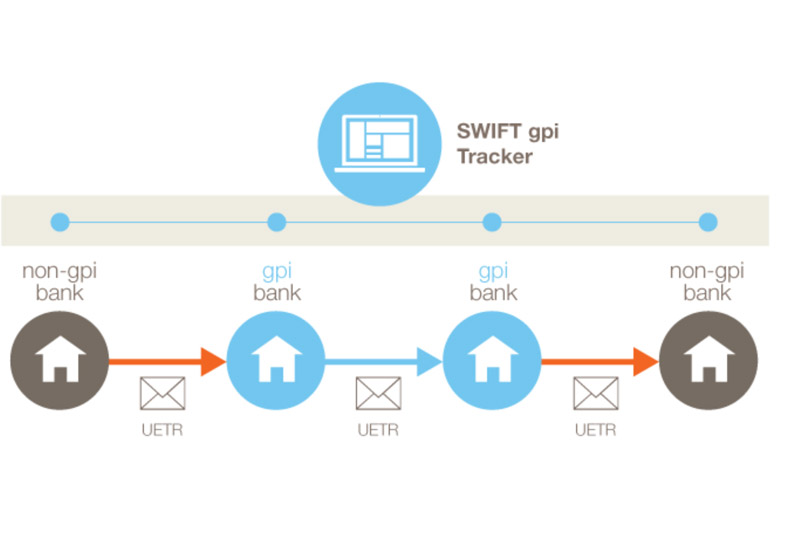
SWIFT (Society for Worldwide Interbank Financial
Telecommunication) announced
on 23 March that it is extending its gpi
Tracker to cover all payment instructions sent across the network.
This will enable gpi banks to track all their SWIFT payment instructions at all
times, providing them full visibility over all their payment activity.
The Tracker, available since May 2017, enables banks that
have signed up to SWIFT
gpi to track their gpi payments in real-time. The Tracker can be
updated by FIN
message or via API. It can be accessed via a graphic user interface (GUI) and
also via API calls to allow the service to be embedded in other back-office
systems.
The Tracker provides automatic status updates to all gpi
banks involved in any gpi payment chain and allows them to confirm when a
payment has been completed. The Tracker also facilitates more accurate
reconciliation of payments and invoices, helps optimise liquidity with improved
cash forecasts and reduces exposure to FX (foreign exchange) risk, with
same-day processing of funds in beneficiaries’ time zones. However, the Tracker
was only available for transfers within the gpi network.
From 18 November this year, a unique end-to-end
transaction reference (UETR) will be included in all payment instructions
carried between all 11,000 customers on SWIFT across more than 200 countries
and territories.
The introduction of
the UETR in payment instructions will be effected through the mandatory annual Standards MT Release in
November. Following the release, all SWIFT customers will be required to
include the UETR in their payment instructions, irrespective of
whether they are gpi banks and or whether they are executing gpi payments, introducing
greater transparency and reducing costs.
“The extension of the Tracker to non-gpi payments is a major
step forward. It will significantly extend transparency and it will drive more
banks to join the service, rapidly making gpi the new normal in cross-border
payments”, said Navinder Duggal,
Group Head of Cash Product Management from DBS, one of the early gpi
adopters in Asia.
Lars Sjögren, Global
Head of Transaction Banking, Danske Bank, commented, “Enabling
end-to-end tracking of all payment instructions through to the end destination
is a game-changer. Until last year, it was impossible for banks to gather this
information on behalf of their customers, but the introduction of the gpi
Tracker has addressed this challenge head on, transforming cross-border
payments and dramatically improving the service that banks can offer to their
customers in a very cost efficient way.”
“SWIFT gpi has been hugely beneficial for banks and their
customers since its launch, but extending this tracking facility across all
payments traffic will be truly transformational. These expanded tracking
capabilities are part of a series of gpi services we will roll out in 2018 to
further improve the cross-border payments experience, enable banks to provide a
far superior service to their customers and rapidly attract more banks to join,”
added Harry Newman, Head of
Payments at SWIFT.
SWIFT
gpi was launched in 2017 and it accounts for 10% of SWIFT cross border
payment traffic, enabling more than a hundred billion dollars to be transferred
across the world rapidly and securely every day.
More than 150 banks, representing over 78% of SWIFT’s
cross-border payments traffic, have signed up to the service, sending hundreds of
thousands of payments daily across 220 country corridors – including major
corridors such as USA-China, where gpi already accounts for more than 25% of
payment traffic. Nearly 50% of gpi payments are completed in less than 30
minutes, many within seconds.
The aim is to make SWIFT gpi the standard for all
cross-border payments made on the SWIFT network by the end of 2020.
















